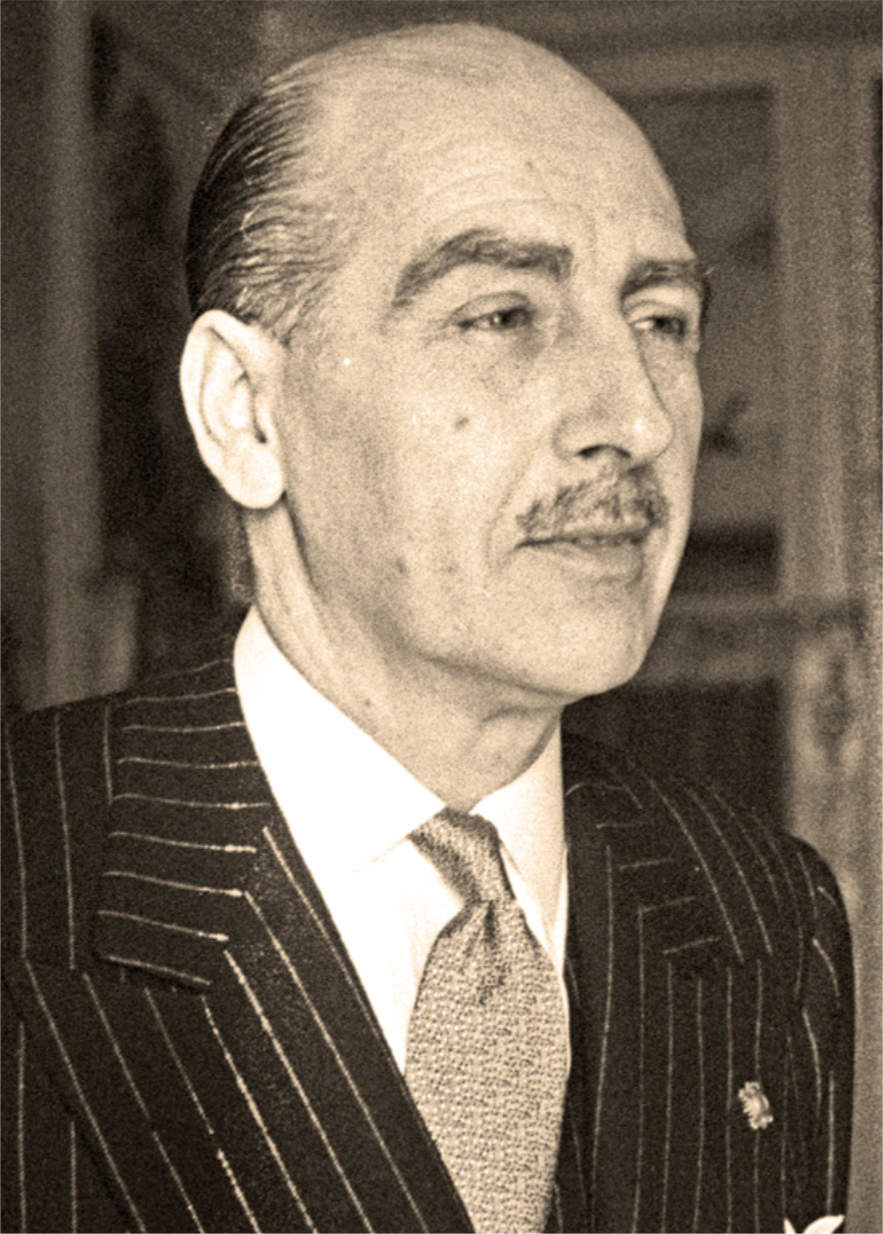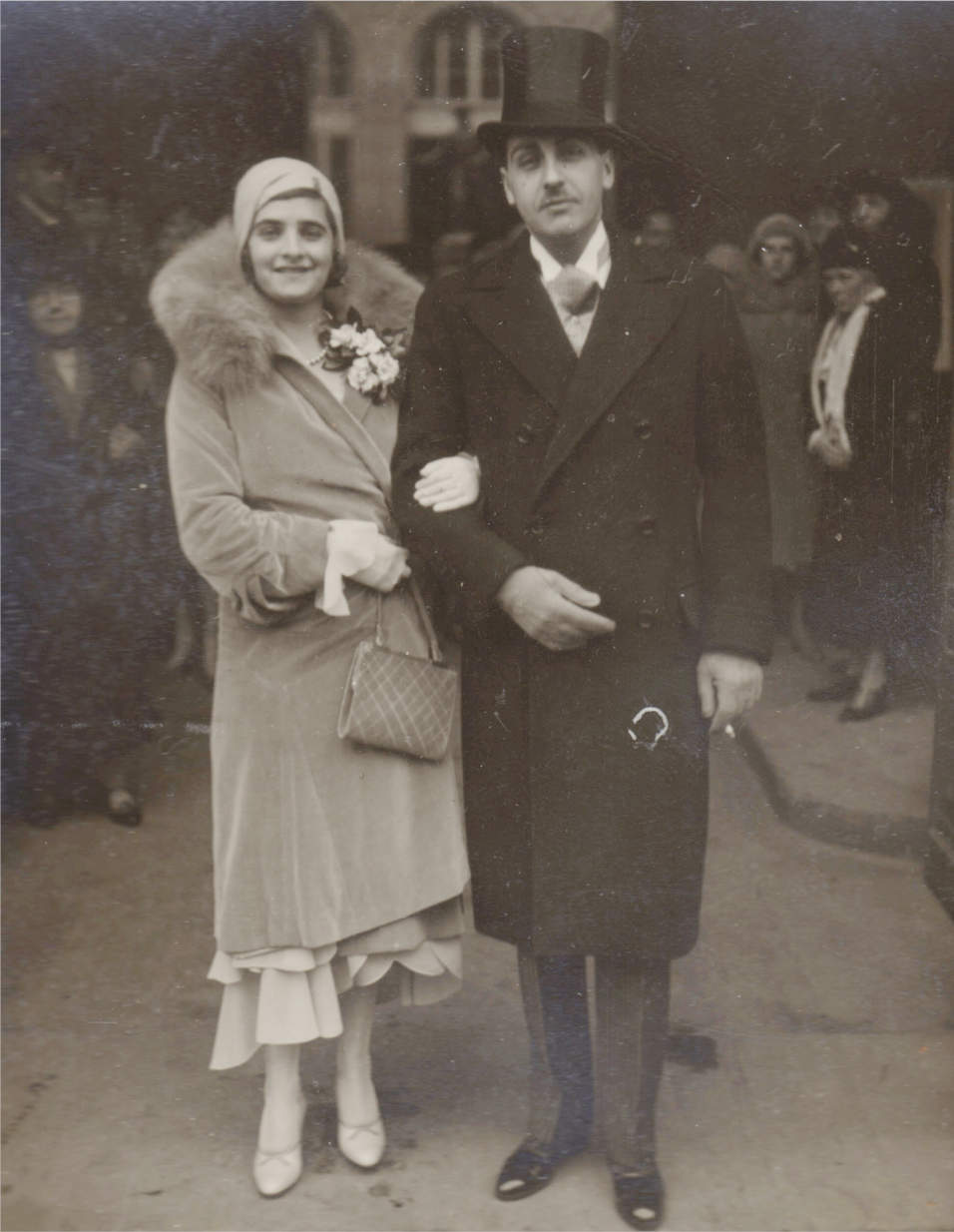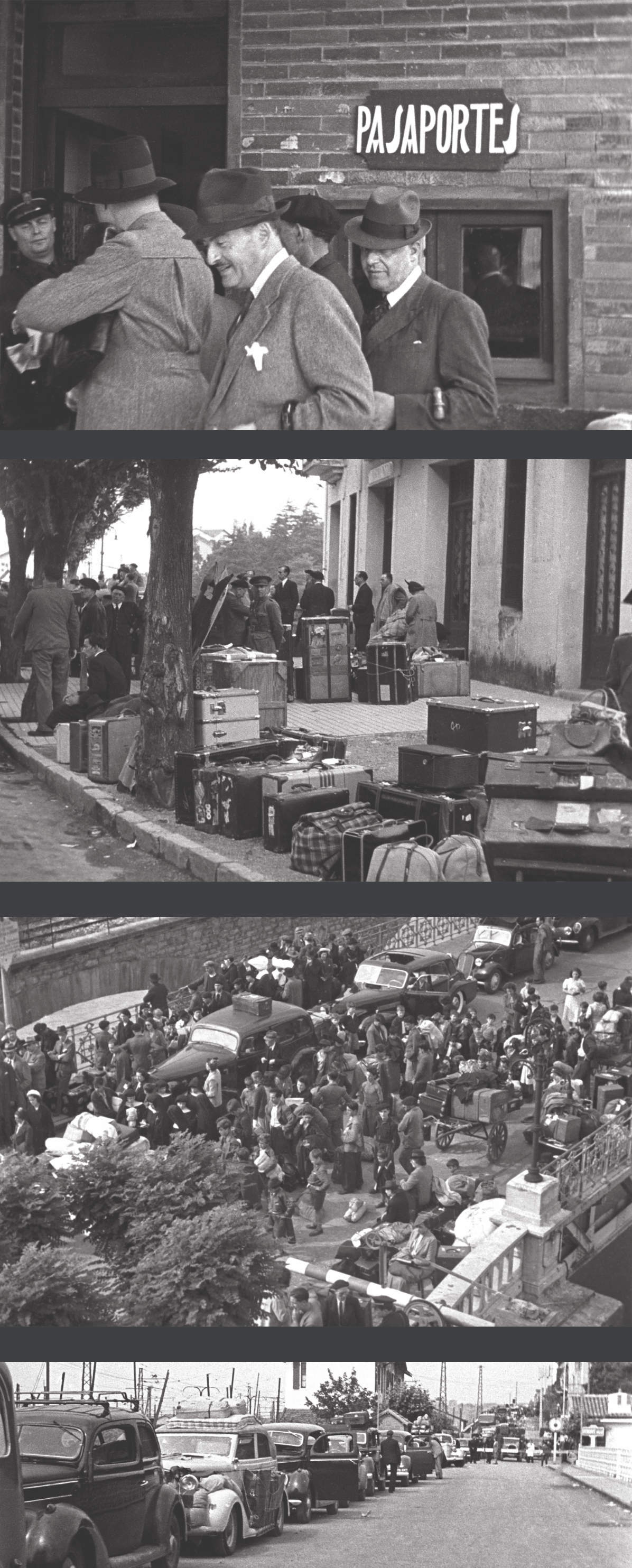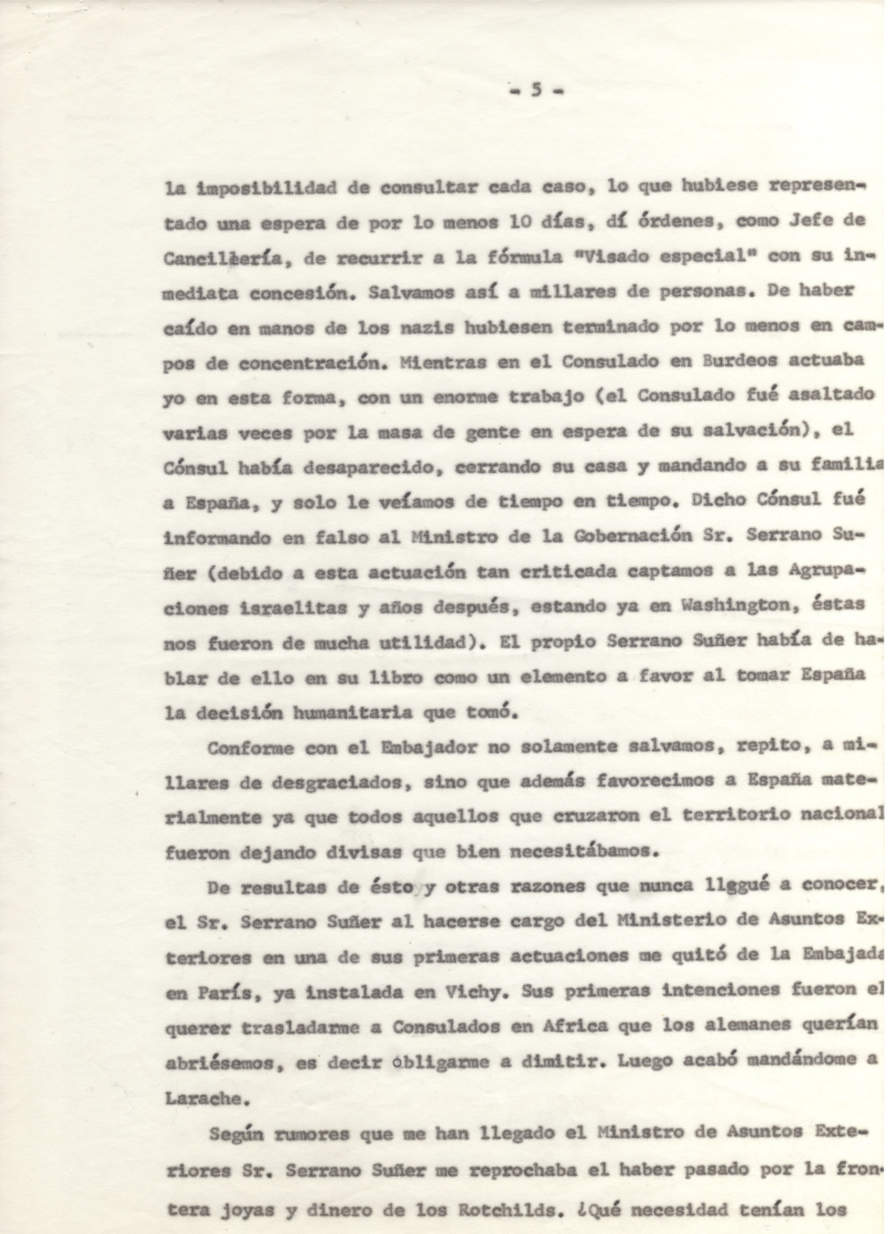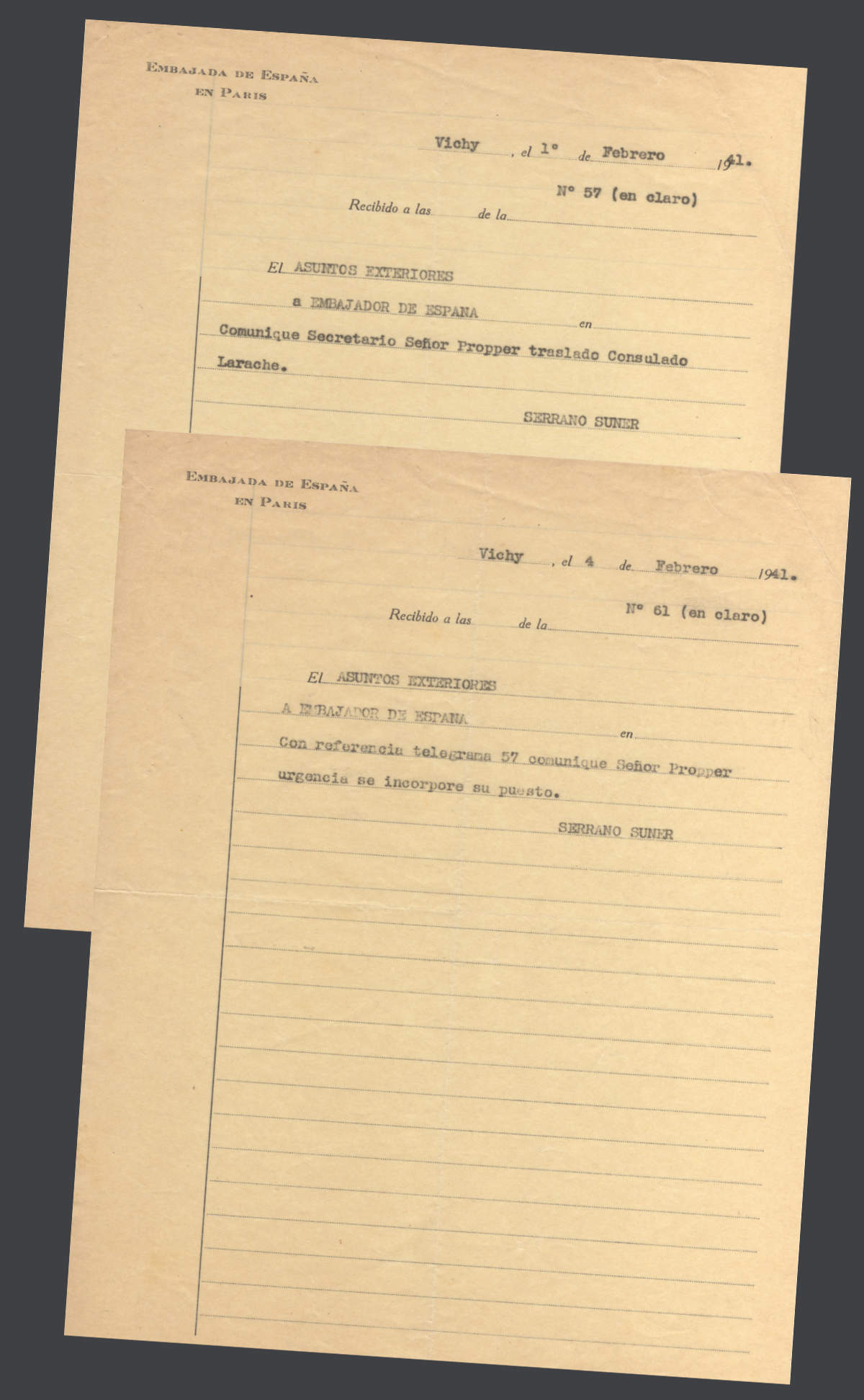FIRST SECRETARY (BORDEAUX, 1940)

EDUARDO PROPPER Y DE CALLEJÓN
Granting transit visas
Eduardo Propper y de Callejón (1895-1972) was the son of Max Propper, a Jew from Bohemia, and Juana de Callejón, a Catholic Spaniard. He began his diplomatic career at the end of World War I, and his first posting were to Brussels, Lisbon, and Vienna, the latter being where he met his future wife, Hélène Fould-Springe. Although she came from a prominent Franco-Austrian Jewish family (her sister, Liliane, married Baron Elie de Rothschild), she converted to Catholicism before their marriage in December 1929.
In April 1939, at the age of 44, Propper was named First Secretary at the Spanish Embassy in Paris. There he lived with his family — in Royaumont, north of the city — from the early months of the Second Republic, when — as a loyal monarchist — he had voluntarily left active service.
Later, at the Spanish Consulate in Bordeaux, he carried out humanitarian work in the face of the rapid German advance, and before the signature of the armistice. In June 1940, the city became a Tower of Babel, overwhelmed by the exodus of thousands of refugees of a multitude of nationalities. Many stateless persons, most of them Jewish, desperately crowded the gates of the Consulate seeking a transit visa to get to Spain, in order to then cross to Portugal and from there to safety.
On their way to Vichy, a contingent from the Spanish Embassy led by the Ambassador, José Félix de Lequerica, stopped in Bordeaux, where the French government had been reestablished. With the consent of the Ambassador and in the absence of the titular Consul, Propper, assisted by another diplomat, Eduardo Casuso, remained at the Consulate around the clock in order to deal with the avalanche of visa requests in only eight days (18-26 June), "getting almost no sleep for several days", according to Lequerica.
Lequerica wrote later: "Absolutely every one of the top Semitic names in finance and policy thronged the Consulate of Spain asking for a visa. If we had charged a million francs each, I am sure that we would have gotten 25 or 30 million, because many of the applicants would not have hesitated to obtain one even at that price."
According to Foreign Ministry Circular No. 152 of May 1940, since it was necessary to restrict as much as possible the entry of foreigners into Spain, granting these visas was only feasible under very urgent circumstances, for a duly justified reason, and the Spanish diplomatic missions were required to report in advance. Propper — ignoring the mandatory consultation with Madrid — decided to issue visas for a limited period of four days, enough time for refugees to get across Spain and arrive in Portugal.
Since the Consulate log books have disappeared, the exact number of visas that Propper was able to issue is unknown. It can be estimated at a minimum of 1500 or as many as a little over 2000, if we look at the statistics from other Spanish consulates during the same period: the Consulates at Hendaye and Bayonne each issued 2000 visas, the majority for Jews. Moreover, we have a reference to the 1574 visas issued between 15 and 22 June by Aristides de Sousa Mendes, the Consul of Portugal in Bordeaux.
The atmosphere of those days is reflected by the fact that the international bridge from Hendaye to the Spanish border was a continual three-lane traffic jam, more than a kilometre long, of cars awaiting their turn to enter Spain. Some took two days and two nights to reach the border crossing, with bottlenecks that made it even more difficult to get everyone through.
Barely six months after the signature of the visas that made it possible to facilitate the transit of Jews across Spain, Foreign Minister Serrano Sutler ordered Propper's dismissal from Bordeaux, and immediate transfer to take over the Consulate in Larache, Morocco. Before Propper left France, President Main granted him the Cross of the Legion of Honour for his contribution to formalizing the French-German armistice. Nevertheless, the Minister showed his extreme displeasure with the diplomat, and in a hand-written note said that the decoration had been conferred on him for "servi-ces rendered to French Jewry".
Eduardo Propper retired in 1965 and died in London seven years later.
On 6 August 2007, Yad Vashem honoured him with the title of Righteous among the Nations.

 Loading
Loading

